
Schmidt Sciences Awards Over $3m to Study AI’s Impact on Jobs
As part of its AI at Work program, Schmidt Sciences has awarded over $3 million to 19 real-world studies conducted by international labor economists about how AI is transforming jobs around the world, the organization announced today.The awardees will each receive up to $200,000 to study how emerging AI technology is affecting worker productivity, wages, employment and careers, with the goal of uncovering where AI can provide the greatest value to labor markets and the global economy, and where AI’s impact will be felt most acutely.Schmidt Sciences is supporting both work underway and commissioning

The Ocean Cleanup: Call for Sailors to Take Part in Plastic Research
in the Pacific, anywhere between California and Hawaii this summer, to take part in its research expedition to help map plastic in The Great Pacific Garbage Patch (GPGP).This summer, the Dutch non-profit is looking to track the patch, the world’s largest accumulation of floating plastic, using AI technology so they can clean it more efficiently in the future.Sailors willing to fit the AI cameras and use GPS trackers on their leisure trips or during regattas can advance understanding of the patch’s composition to help future cleanup efforts.The organization, whose mission is to rid the world&rsquo
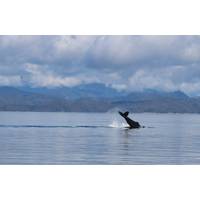
Sea.AI Technology Supports European Initiative to Protect Whales
Whale and Dolphin Group (IWDG) and the University of La Laguna (ULL) to support efforts under the European Union’s ATLANTIC WHALE DEAL project.Whales face increasing threats from ship collisions in busy maritime routes. The ATLANTIC WHALE DEAL brings together scientists, conservationists and technology experts from across Europe to tackle the problem.Sea.AI will provide its AI-powered machine vision technology which detects and classifies objects on the water’s surface. This technology will enable scientists from IWDG and ULL to monitor and track surfacing whales, gather valuable data and
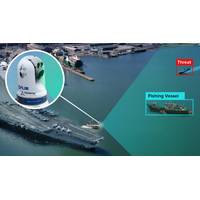
AI Technology Targets Enhanced Naval Escort Safety
set of harbor-specific learning data, including new categories like piers and buildings. “We’re launching a more concerted effort to collect additional data that has more crowded backgrounds and congested scenes,” Eaton says.PAVE uses electro-optical (EO) and infrared (IR) detection technology to “see” objects during both day and night. “Instead of having different people on different boats with all of them having only a partial view of the world, we’re building a cohesive picture, which will alert and issue warnings when something deserves a closer look. It makes
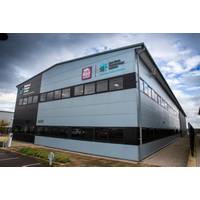
NSC and PlanSea to Develop AI-Powered Subsea Decommissioning Tech
The National Subsea Centre (NSC), a center of excellence for subsea research and technology development, has been awarded a grant to develop a subsea decommissioning optimization software demonstrator with PlanSea, a developer of marine logistics artificial intelligence (AI) technology.The grant was awarded to the National Subsea Centre and PlanSea by the Scottish Funding Council (SFC) in partnership with Scottish Enterprise (SE) to assist in developing a subsea decommissioning optimization AI-Demonstrator.As global operators face the challenges of large-scale and complex subsea decommissioning
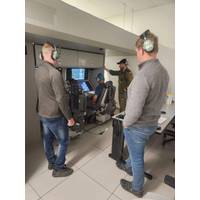
Zelim Showcases Its MOB Detection Solution in Canada
lives,” said Sam Mayall, Zelim’s CEO.For CASARA, whose SAR operations cover vast and challenging geographies, ZOE represents a potential game-changing addition to their toolkit."CASARA is excited to collaborate with Zelim in showcasing our drone capability as well as to explore what AI technology can offer in the prosecution of searches. We look forward to continued collaboration as we both look to improve outcomes for subjects of SAR missions,” added Maj Claude Courcelles, National CASARA Liaison Officer.Following the success of the trials, Zelim is now working with other organizations
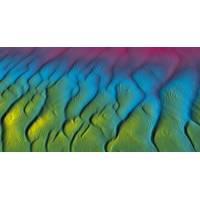
AI & Seabed Mapping Project Recognized
awards, following the co-development of an AI solution aimed to improve the speed and ease of real-time seabed mapping.GeoAcoustics, a manufacturer of sonar equipment for seabed mapping, approached UEA’s School of Computing Sciences, and feasibility study was first undertaken to see if AI technology could automatically remove unwanted noise from sonar data. This was carried out by two MSc Computing Science students, supervised by Dr. Wenjia Wang and Dr. Ben Milner, and a team from GeoAcoustics.Following encouraging results, further R&D grants were awarded; an Enabling Innovation: Research
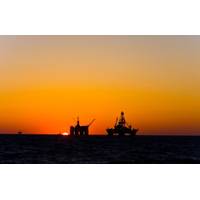
Shell to Use New AI Technology in Deepwater Oil Exploration
Shell Plc will use AI-based technology from big-data analytics firm SparkCognition in its deep sea exploration and production to boost offshore oil output, the companies said on Wednesday. SparkCognition's AI algorithms will process and analyze large amounts of seismic data in the hunt for new oil reservoirs by Shell, the largest oil producer in the U.S. Gulf of Mexico. "We are committed to finding new and innovative ways to reinvent our exploration ways of working," Gabriel Guerra, Shell's vice president of innovation and performance, said in a statement. The goal is
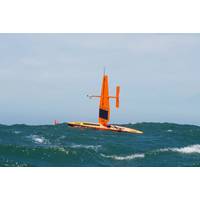
Saildrone Closes $100 Million Series C Funding Round
mid-October announced the close of its $100 million Series C round, bringing its total funding to $190 million.Led by BOND, the round includes new investors XN, Standard Investments, Emerson Collective and Crowley Maritime Corporation, as well as participation from previous investors, Capricorn’s Technology Impact Fund, Lux Capital, Social Capital and Tribe Capital. Saildrone said it will use the new financing to grow its data insight teams and scale go-to-market functions to meet the rapidly growing demand for ocean domain intelligence.An American owned and operated company founded in 2012, Saildrone&rsqu
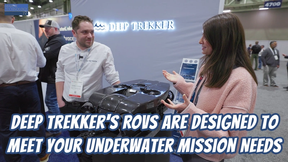
 December 2025
December 2025





